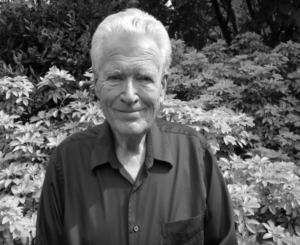Shaykh Ibrahim Mogra serves as an Imam and Scholar of Muslim theology, and appears regularly in print and on television.
In this piece, written for the Spring 2013 edition of Inter-Faith Matters, newsletter of the Edinburgh Inter Faith Association, Shaykh Mogra discusses Blasphemy Laws, a divisive topic that has seen recent protest in Edinburgh.
A number of countries around the world have blasphemy laws. Most of these countries have significant populations of religious people. Some countries like ours, although secular and liberal democracies, also have blasphemy laws. This country has deep rooted connections to Christianity and in turn the blasphemy laws cover only Christianity. Despite this, I, as a Muslim, have no problem with that what so ever. In fact, I have argued against the abolition of our blasphemy laws; especially when the argument of creating equality between religions has been used. I would rather that Christianity in this country continues to be protected by blasphemy laws than not have any such laws – if no other religion is protected then at least Christianity has some protection. Thankfully, in the UK these laws are not utilised to target us as non-Christian people. Unfortunately that is not true of other countries.
I have no problem with what kind of legislation and laws any country’s population want to have in place. Their legislature and their government decides for them. Pakistan’s blasphemy laws are not there to prevent the abuse of the Qur’an and the Messenger Muhammad (peace be upon him) but equally to protect what other religions consider sacred. However my issue is with some recent cases in which these blasphemy laws have been used, or more accurately, misused in Pakistan.
The blasphemy laws of Pakistan are increasingly used to target Christians to oppress them and carry out unacceptable injustices. Some shocking cases have seen Christians prosecuted on the basis of false allegations and false evidence and their homes attacked. Churches have been attacked and burned, something that Islam forbids even in war. One case even had an imam who planted false evidence to get a conviction. Bizarrely, this individual himself set light to the Qur’an with the intention of framing a Christian with the crime. By all means have blasphemy laws if that’s what you want but do not misuse them to target minorities. Of course one cannot condemn a whole nation for the acts of an aberrant individual, but even one case such as this is one too many. It is a disservice to the religion of Islam and to reputation of Pakistan – a nation which declares itself to be an Islamic state.
How can it be morally right to be prepared to frame charges against the innocent and then claim to be acting in the interests of Islam? Salman Taseer – the governor of Punjab – was murdered by his own bodyguard in January 2011 because of his campaign against the blasphemy law. Is taking a life for such a reason ever justifiable in Islam? Clearly not. The letter of Islam seems to have become more important than its spirit.
It was not always like this. This country has had a much respected Christian Chief Justice – Robert Cornelius – in the 1960s and its air force was staffed with Christians who have risen to highest ranks, many of whom are legends following exploits in the 1965 war. Missionary schools continue to thrive and even within the last decade, in spite of the turmoil, an acting Chief Justice belonged to the nation’s Hindu minority.
Now how much blasphemy against Islam are we Muslims guilty of every day? How many times a day do we neglect the teachings of the Qur’an? Is that not more serious than a non-Muslim desecrating the Qur’an? Since when has it been more important to protect the pages on which the Qur’an is printed than practicing the teachings contained within those pages? How many complete copies of the Qur’an are burned each time in sectarian attacks on mosques? It seems to me that Muslim society in many parts of the world is in a fractured state of mind and is in need of deep self-criticism so that some healing can begin. Some Muslims have demonstrated violently against the burning of the Qur’an yet have never stopped to think that their behaviour is forbidden by the very book whose burning has so angered them. Are the pages more important than the lives that have been lost in the rioting? A pastor burns the Qur’an and thousands of miles away Muslims are dying on the streets in protest. Someone’s father, son, brother, a family bread winner being killed because they believe a blasphemous and sacrilegious crime has been committed – what of their own actions? What of the dependents they leave behind? Is the paper on which scripture is printed more valuable than human life?






